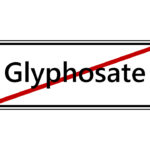By David Blyweiss, M.D., Advanced Natural Wellness
June 3, 2015
- Is the wheat in your bread drenched in roundup?
- The odd role of glyphosate in gluten sensitivities
- 3 tips to beat gluten intolerance
Here’s a bit of news I bet you’ll find interesting.
It turns out that folks who have wheat sensitivities here in the U.S. often experience no symptoms at all when they travel to other countries. They can enjoy thick, crusty bread in Hungary and all the pasta they want in Italy without any problems whatsoever.
This might sound unrealistic to you. After all, wheat contains gluten.
So how is it possible that diarrhea, constipation, fatigue and other symptoms that occur in the U.S. after eating wheat might not happen in other countries?
Well, we’re finding there may be more to the story. The information I’m about to share with you is a shocking truth – one that could be responsible for the inflammatory role gluten plays here in the U.S. It’s a twisted link between poison and profit.
MD Exposes the Hidden Danger to Your Eyes

When your eyesight starts to fail, it's a real problem. Suddenly you can't go to the grocery store... you can't get to the doctor if you have an emergency... you can't meet your friends for dinner…
Your "regular" doctor doesn't have time to keep up with the latest research. And the same goes for eye doctors. They go to school to learn how to fit you for glasses and contacts, but have no way of preventing the damage and loss of eyesight that threatens your freedom and independence.
Let me show you something that explains a LOT about how your eyes work.
In my FREE Special Report, I'll show you a HUGE, untapped resource for your eyes that safely and naturally restores clear, effortless eyesight.
Click here to get started...
Let me explain…
You’ve probably heard of glyphosate. This is the main chemical used in the weed-killer Roundup.
I’ve written about it many times in the past, mostly in relation to Roundup-ready GMO crops. But there’s another place that this weed-killer is used with reckless abandon: On wheat crops.
Now, these wheat crops aren’t genetically altered.
Instead, here in the U.S. (and also in the U.K.) wheat crops are drenched in glyphosate a week or two before harvest. But it’s not to kill weeds.
Instead, it acts as a drying agent. This allows farmers to boost yields and reduce harvest time. And sure, it might be great for their profits, but it’s poisoning our wheat supply – and your health.
In fact, today there is evidence it might just be a hidden factor that’s fueling gluten intolerance and celiac disease.
It’s a well-known fact that people with celiac disease have lower levels of certain beneficial bacteria in their guts, specifically bifidobacteria and lactobacillus. Both of these modify gluten in a way that makes it less allergenic.
Are You Suffering From...
- Love handles and a pot belly
- Romance that isn't what it used to
- Forgetfulness and inattention
- Low (or no) strength and endurance
- A sex drive that's shifted into neutral...or worse
If so...you may have Mature Male Burnout. Click here to discover more about this unique condition and what you can do about it.
But here’s the problem. Glyphosate destroys these healthy strains of bacteria! This means highly allergenic gluten fragments are free to wreak havoc on your body and digestive tract. That’s not good news for you or your health. In fact, it can be downright uncomfortable and painful.
At the same time, glyphosate promotes an overgrowth of some very nasty and unhealthy bacteria, like e. coli and c. difficile. Both of these can greatly add to intestinal distress, nausea, abdominal pain and severe diarrhea.
We also know that celiac disease is linked to certain nutritional deficiencies.
People with this condition are often deficient in vitamin D3, cobalamin, iron, molybdenum and selenium. They also fall short when it comes to the amino acids methionine and tryptophan.
Once again, glyphosate might be the enemy. It binds to trace minerals in your body and literally strips them away. It’s also known to deplete certain other nutrients and amino acids.
Additionally, glyphosate may explain why Americans have such a hard time digesting fats. It disrupts certain liver enzymes that impair the ability to process fats in the gut. That only adds to the gluten-related digestive complaints that may plague you.
But that’s still not the end of it.
In addition to being a poison, glyphosate disrupts your body’s ability to detoxify itself. This means it can cause the toxic load in your body to build up over time. Eventually, the accumulation of toxins may reach a tipping point. (They won’t kill you overnight, but you’ll certainly feel the effects over time.)
If you have any doubt that glyphosate isn’t playing a role in the instance of celiac disease in our country, take a look at the following chart:
 |
| Source: Interdisciplinary Toxicology |
There are many countries that have bans and restrictions on the use of glyphosates.
Unfortunately, the U.S. isn’t one of them.
So what can you do to reduce your chances of glyphosate-induced gluten intolerance until we catch up with the rest of the world?
- Start taking a probiotic. It’s important to restore a naturally-healthy balance to your gut microbiota. Look for a formula that contains bifidobacteria, lactobacillus and other strains of healthy bacteria. The higher the colony count, and the more live strains involved, the better off you’ll be. Just make sure to take it daily.
- Look for organic, Non-GMO Project Verified breads and pastas. They’ll cost a little more, but it will be worth it in the long run. They won’t contain any glyphosates. And by the way. Don’t confuse “natural” or “100% natural” with the idea that something is organic. They aren’t the same thing.
- If you truly have celiac disease, steer clear of any food that contains wheat, spelt, kamut, barley, semolina, durum and rye. You should also avoid oats. Oats don’t contain gluten, but are often contaminated with gluten in the field or during storage or processing.
Also, don’t buy foods just because they’re labeled as “gluten-free.” Check the ingredient list for sugars and other ingredients that will contribute to intestinal inflammation.
Sources:
Samsel A, et al. “Glyphosate, pathways to modern diseases II: Celiac sprue and gluten intolerance.” Interdiscip Toxicol. 2013 Dec;6(4):159-184.






